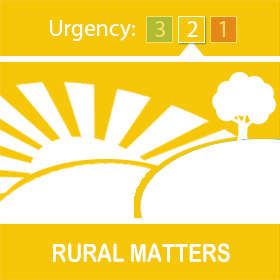
Across the counties, Devon & Cornwall Police are supporting a national week of action in a bid to tackle business crime and form positive relationships between retail outlets, employees and security staff following a 37% rise in shoplifting crime nationally.
Across the counties, Devon & Cornwall Police are supporting a national week of action in a bid to tackle business crime and form positive relationships between retail outlets, employees and security staff following a 37% rise in shoplifting crime nationally.
Safer Business Action Week is co-ordinated by the National Business Crime Centre (NBCC) and starts on Monday 14 October until Sunday 20 October. The aim of the week is to bring together local police teams and businesses to develop a way to work together to tackle this issue.
Assistant Chief Constable Glen Mayhew said: “We are aware of the impact that business crime can have on our communities. Tackling this issue remains a priority for the Force, and weeks of action like this are ideal times for us to demonstrate what we are doing, and will continue to do, to help protect local businesses. By taking a collaborative and proactive approach, we can deploy resources to specific locations on patrol and directly target offenders.”
Joe Champness, the Crime Prevention and Business Crime Lead for the Force, said: “This is a vital initiative to help keep our local businesses and their livelihoods safe. It’s an opportunity for our teams across Devon and Cornwall to bridge the gap and strengthen relationships between police and our local businesses.
“There are many benefits to connecting directly with business owners and employees. Police officers can raise awareness of business crime, encourage reporting, gather information to support with investigations, share prevention advice to help protect businesses from being a target of crime and highlight support available to businesses who have been impacted by crime.
“The proactive engagement planned this week isn’t a one-off - the work to protect businesses continues across the year. The national week is an opportunity for us to continue to raise awareness of the work police do, along with our local partners, to keep communities safe.”
Businesses can be affected by a wide variety of crimes from theft, burglary and cyber crime to abusive or violent behaviour directed at staff. The Safer Business Action event is all about partnership working, with the police, business, private security, Business Crime Reduction Partnerships and Business Improvement Districts, working together to reduce crime.
Some of the activity taking place during the week of action include:
- High visibility patrols incorporating hot spots, to include active engagement with shop workers and public
- High visibility patrols with security/loss prevention officers and engagement with stores and offer crime prevention advice
- Pop-up events offering crime prevention advice and reassurance to staff
- Targeted operations
Please follow local police social media pages to get the latest info for events in your area.
Devon and Cornwall Police and Crime Commissioner Alison Hernandez said: “Businesses are the lifeblood of our communities, providing employment, innovation, training and aspiration. Devon and Cornwall’s celebrated agricultural sector literally puts food on the table. Yet too often these vital organisations are being targeted by criminals.
“Although our force area has less recorded crime than most others, shopkeepers I speak to complain of a new rise in shoplifting which eats into their profits. Legitimate traders are undermined by those who put others at risk by selling counterfeit or black-market goods, and those who work in our rural economy have tools and equipment targeted by organised crime gangs.
“I am proposing to include a focus on theft in my Police and Crime Plan for 2025-29 and my message this week to business owners is that there is a huge amount of help and support available to businesses to protect them against crime and we want to work with them to bring criminals to justice and provide the resources needed to tackle this problem.”

 Criminal investigation into suspended Chief Constable dropped
Criminal investigation into suspended Chief Constable dropped
 Devon families receive their primary school place offers
Devon families receive their primary school place offers
 Theft of Quad Bike / Livestock Trailer and / Farm Tools - Tiverton and Withleigh Area
Theft of Quad Bike / Livestock Trailer and / Farm Tools - Tiverton and Withleigh Area
 Stay vigilant for ticket fraud ahead of top events and concerts this summer.
Stay vigilant for ticket fraud ahead of top events and concerts this summer.











